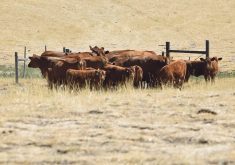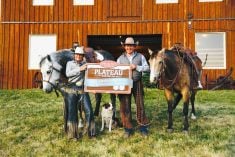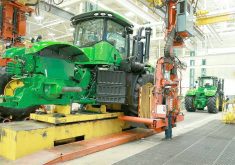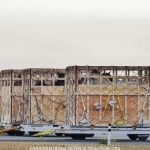The urban media and their lobby group allies are once again mounting a PR assault against the sale of government land for agricultural development purposes. It s an old story filled once again with hypocrisy by those who are the least involved. The government can t win the PR battle no matter how transparent and open it has made the process, but then it took some unwise steps when it first started this exercise.
Last year the government announced it would sell 6,500 hectares of government grazing land to a large potato-growing operation. Much of the land would be converted to irrigated cropland. There is no problem with that process as that is how irrigation farming was started in southern Alberta. It s also an ongoing process with public land being sold by the government across the province. However it s been awhile since such a large block is to be sold in southern Alberta.
Read Also

Deep cuts to ag research jeopardize Canada’s farming future
The huge cuts to ag research at Agriculture Canada are being widely panned by farm organizations, but there seems to be little hope of the government reversing its decision.
It all started last year when instead of putting the land up for sale to the highest bidder in a transparent fashion, the government appeared to have cut some secret deal with a company that allegedly had made a financial contribution to the Conservative Party. When the media caught wind of that, they went over the edge. When it was found that the existing users, a group of cattle producers who had a longtime grazing lease, were being shafted in the process it made the government look even more callous and highhanded.
To add to the fire, lobby groups got involved making self-righteous statements about the loss of habitat for the local wildlife. The government not unsurprisingly got its back up and was determined to go through with the sale. Luckily for it, the intended buyer decided to back out of the deal and the matter seemed to have been put to rest.
However it seems the government just can t resist sticking it to its critics and announced that the land in question was now being offered for open sale with the proviso that alternate grazing land be offered to the existing users. That seems fair enough, but as expected, a crescendo of protest quickly arose, again from the usual suspects, but then what did the government expect?
The Alberta Wilderness Association is against the sale because of the loss of habitat and endangered bird species. Yet this same conservation group does not oppose the proliferation of wind farms that have destroyed thousands of acres of habitat in southern Alberta and kills thousands of birds and bats every year. The Alberta Fish and Game Association is also opposed to the sale, but for more selfish reasons. It wants to preserve the habitat so their members can hunt and kill wildlife on public land.
Some in the urban press oppose the sale because of the loss of native grassland. Somehow they forgot that they are responsible every day for the loss of habitat in the boreal forest because of their endless appetite for trees to turn into newsprint. It s the same story for all these groups do as I say don t do as I do.
One newspaper columnist implied that the sale would see more potatoes being grown for french fries. Really, perhaps he should have acknowledged that in Alberta thousands of acres of land are also used to grow malting barley for beer, wheat and rye for whisky and vodka, sugar beets for sweeteners, and what about all those cattle being grown for fast-food hamburgers? Or is all that striking too close to home? What about the millions of hectares in the world devoted to coffee, tea, wine and chocolate production? Is that somehow more noble than growing potatoes for french fries?
Curious isn t it, the city media and lobby groups protest the loss of land to agricultural production, but remain silent about the loss of thousands of hectares of land every year to subdivisions and industrial development in their own backyards. Wasn t that wildlife habitat and grasslands at one time? Even when a city has preserved a large tract of land they can t maintain it properly. Nose Hill park in Calgary, the largest urban grassland park in North America at 2,500 hectares, is slowly being smothered by brush and noxious weeds due to neglect.
The fact is we need more public land put into agricultural production, it provides jobs and economic activity regardless of what is grown. With the attitude of the urban media and their lobby group allies, there would be no irrigated cropland in southern Alberta and probably no agriculture industry. But we would have lots of habitat for the few people who would be living in the area and who could afford the time and money to go birdwatching and antelope hunting.
———
Whataboutthemillionsof hectaresintheworlddevotedto coffee,tea,wineandchocolate production?













